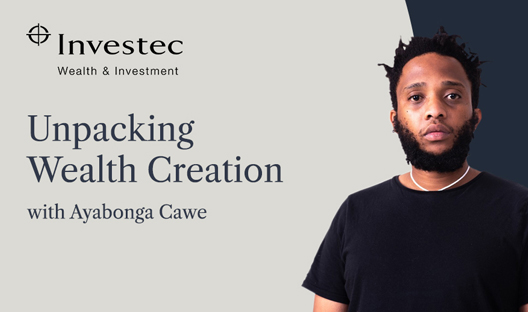Get Focus insights straight to your inbox
Digital-first customers are no longer the future of banking – they are the present.
Millennials (25-39 years old) and adult gen-zers (18-24) represent over $3 trillion in spend1. The sheer size of gen Z should be reason enough for financial institutions to start paying attention to this generation. Analysis by Bloomberg2 suggests that this group will make up a hefty 32% of the global population in 2019 - outstripping even millennials.
Estimates of what they and other generations close to them will inherit over the next years range from $15 trillion to $68 trillion, and some are expected to also become wealth creators at a younger age.
So, first off, who is gen Z?

Let’s start with an overview of the world’s most socially-focused, technologically-advanced, influential, social media-obsessed generation. And just to note, 60% of TikTok users are gen Z and they’re the most active group on this platform.3 It’s a good lesson to the banking world on how important design is to this generation – we’ll touch on this more later on.
Nicknamed ‘digital natives’, this generation has very little memory of a world that existed without smartphones and easy access to the internet and worldwide communication.
Possibly not quite the cynics that their millennial predecessors are, gen Z (people born between 1997 and 2012) are considered to be the most optimistic generation alive who prefers to work smart, not hard.
As the fourth industrial revolution takes place, technology and social platforms have become a second native language for this savvy group, who are using their tech knowledge and easily accessible online resources to their advantage to better understand how they can be financially successful now, and in the future.
Also, the line between a person’s societal expectations, upheld morals and the banking products they choose to use are blurring. Gen Z is said to value individual expression, avoid labels and mobilise themselves for a variety of causes. These traits bleed into their expectations of financial products as they align what they buy with their own personal branding and beliefs.
With 78% of millennials planning to use more digital tools in wealth management versus 31% of Boomers,4 it’s interesting to see how much action is going on with Environmental, Social and Governance funds, better known as ESG funds, which allow people to invest into funds that align with their own value system;5 UK-based sustainable funds have spiked from £4.4bn in 2008 to £15.4bn in 2017.6
As mentioned, gen Z needs alignment between their values and the values of the product they are investing into. They care about an institution's stance on criteria that impacts society just as they would any product or service they would use - are they eco-conscious, do they have an authentic strategy and have they got easy-to-use features like carbon tracking and offsetting?
In a similar vein of socially positive impact banking, gen Z is the second highest generation7 to have donated to charity throughout the pandemic. Having an option built in to do that within an app and a choice to take rewards from their bank in the form of matching all money donated could give providers a much-needed moral edge.
Although there are many feature add-ons that could benefit gen Z, it will take more than implementing features that might seem appealing in-house on top of legacy infrastructure to grab this unimpressionable generation’s attention, money and personal data. According to a survey by software firm Target, 29% of UK gen Z respondents would not share their data with their bank even if they received additional services and rewards as a result. This was the lowest proportion of any group surveyed.8
With that said, we decided to look at what makes gen Z tick when it comes to banking and wealth management now and how that will impact their financial decisions over the coming years.

Understanding gen Z’s financial habits
We would be remiss if we didn’t bring up the current pandemic we’re all dealing with.
Unlike millennials, who came of age during the Great Recession, gen Z was expected to inherit a strong economy with record-low unemployment. This changed overnight in early 2020.
Many young people were completing their studies, looking for internships or new employment. Now there’s the added pressure of having to deal with an uncertain future, and appealing to businesses conducting significant layoffs and also dealing with a rocky future themselves.
Covid-19 has unleashed a wave of entrepreneurialism9, making gen Z more likely to make money online.
Although generation Z might still be living at home with very little income, they are more likely to put that money to work more smartly and are much more cautious about spending. An Accenture report this year shows that 68% of those in the gen Z bracket actually budget and save more responsibly than their older counterparts.10 Plus, more than a third of generation Z have savings that amount to more than £100011 and are the least likely generation to have any form of debt.
This could correlate with the fact that gen Z takes it on themselves to be financially educated through a number of platforms and resources. 56% of gen Z respondents say that financial education programs or seminars are very or extremely important sources of personal finance information. Participation in such programs is dramatically higher for gen Z compared to other generations.12

Their consumption of financial literacy also comes from young people just like them talking about finance openly on their much loved social media platforms - TikTok, Instagram - you name it, they discuss how to make money on side projects, better understand the stock market, share favourite financial tips amongst each other13 and most importantly of all, these young adults are applying these lessons to their own lives and successfully understanding the basics of the financial world much better than previous generations.14
These younger generations expect digital experiences to be entertaining as well as educational. Even providing financial literacy around the benefits of getting money back on purchases, or even how to invest in a light yet snappy way through their banking app (in the form of short videos as an example) could create more opportunities for keeping gen Z engaged. Understanding their challenges, addressing those questions and pinpointing how they consume content digitally could be the differentiator between two providers.
Banking habits of generations are generally scrutinised as each group watches the actions of their predecessors and listens to the financial stories from the past, taking each of these moments as potential life lessons that can be improved on.
If you consider the worries around money that gen Z has due to watching past generations struggle with coping financially, teaching them basic financial literacy skills can be a valuable way to build relationships. Since a large portion of gen Z are still underage, companies that take the time to educate are likely to be popular with parents looking to teach their kids about money.15

Unpacking Wealth Creation podcast series
Metro FM Talk Show host Ayabonga Cawe moderates a fortnightly Investec Wealth & Investment podcast series aimed at equipping young professionals with the insights they need to start their wealth creation journey.
So now we understand their financial habits better; what is important for gen Z when it comes to their banking products?
There are three areas we could cover here, how gen Z are investing, how they deal with physical cash and rewards, and how they make payments.
Younger generations are much more open and aware of the potential financial opportunities cryptocurrencies can bring. Although financial institutions are cautiously approaching the concept of crypto, especially after the FCA’s warning16 to those investing in alternative currencies that they will not be reimbursed if they lose their money to scammers, it makes sense for financial institutions to think about how to approach cryptocurrencies and emerging payment methods as demand increases.
On the topic of new technologies enabling financial products and services, Open Banking’s started to gain traction amongst consumers. Open Banking-enabled solutions will capture this generation’s interest in the coming years and enable many of the services covered in this section, whether it's payments or everyday banking.
Learn more about open banking
At 18:57 in this No Ordinary Wednesday podcast, Devina Maharaj, Program Head of Investec Business Online and API Banking SA, explains the concepts of open banking and programmable banking, whereby developers can code their own financial experiences.
As the tools become more readily available to gen Z, the most technologically-integrated generation ever, this demanding cohort will be looking for providers that can deliver a whole range of financial services, in one place17.
This creates a huge opportunity for providers to build something that is mobile-first and easy to stay active within the app (for example, approve a transaction, or remember to buy insurance for their phone from their pre-existing provider), yet work silently in the background and only appear when initiating a task (pay using Apple Pay for an online transaction within Instagram). This creates a streamlined, more enjoyable experience for everyone whilst allowing life to continue with minimum interruption.
Gen Z is said to be a lot less flashy than previous generations; they want societal action, not gimmicks.
A no hassle, no fuss approach to banking is preferred by gen Z. They may love a flashy card18, yet do not want to attract attention to themselves or even think about banking. Gen Z is said to be a lot less flashy than previous generations; they want societal action, not gimmicks.
The ability to pay on the go, have a seamless transition between shopping and paying anywhere online or in-person, to sending money to friends and family is incredibly important.
They need a place that can provide many types of services that suit their specific needs, or they will be more than happy to find a different option elsewhere. As the need for instant gratification amongst all generations continues to grow in our fast-paced world, generation Z are understandably keen to have banking services that fits around their lives, not the other way around. Every month, more than 50% of this segment use digital wallets and over 75% use other digital payment apps or peer-to-peer (P2P) apps19. The burst of payments products on the finance scene only goes to prove that payments are one of the most frequent interactions customers have, and yet there is so much potential for innovation in that space.
What design principles do financial institutions need to consider when catering to gen Z?
We mentioned TikTok earlier in this article, and for good reason - they created the platform to attract gen Z by design and overwhelmingly succeeded.
To meet the needs of young consumers, financial institutions should not think in terms of features, they should be thinking about creating experiences especially for a mobile-audience as 37.5% of this generation stated that they would only choose a digital or online bank.20 Gen Z wants an omni-channel experience that lets them pick and choose how and when they access and manage their accounts and products. The best-equipped providers will need to grasp gen Z’s financial wants and needs if they are to capture this generation’s consumer loyalty.21
Final thoughts
This makes one thing clear – gen Z is forcing us all to reimagine our digital future, and there is no denying that financial institutions need to step up in terms of how to cater to one of the most financially-savvy generations this world has seen.
Financial institutions would be wise to watch gen Z closely – how they interact with products, how they think about money, what their societal associations with cash are, and how they discuss it with friends and family. Financial institutions can take these lessons and apply them to other areas of their business. Better understanding these patterns and behaviours open up conversations around value-based financial products that can keep up with people’s rapid, on-the-move lifestyles. Plus, other generations of clients will also benefit from these discoveries.
Honing in on the needs of one subsect of society can create new thinking around solving challenges across the board. This can substantially improve not only an institution’s financial bottom line, but also the satisfaction of a firm’s wider customer base, whether individuals or businesses, regardless of age or income.
At Investec, we predict that this generation will take hold in our client base in less than a few years’ time. We are future-proofing ourselves by better understanding who these people are, and their differences in financial habits and behaviours. We then seek to partner with nimble fintechs that can help us integrate relevant, value-adding products quickly and seamlessly.
Find out more about Investec

Private banking for you
Join an award-winning Private Bank and access our suite of banking services, both locally and internationally, enabling you to create, grow, preserve, and protect your wealth through us.

Private banking for young professionals
Access a comprehensive range of solutions spanning capital, advice and treasury risk management. As an international corporate and investment banking business, we work with growth-orientated companies, institutions and private equity funds.

Private Capital
Private Capital provides flexible capital solutions tailored to the needs of established entrepreneurs, business owners, high net worth individuals and key private corporate decision makers.

